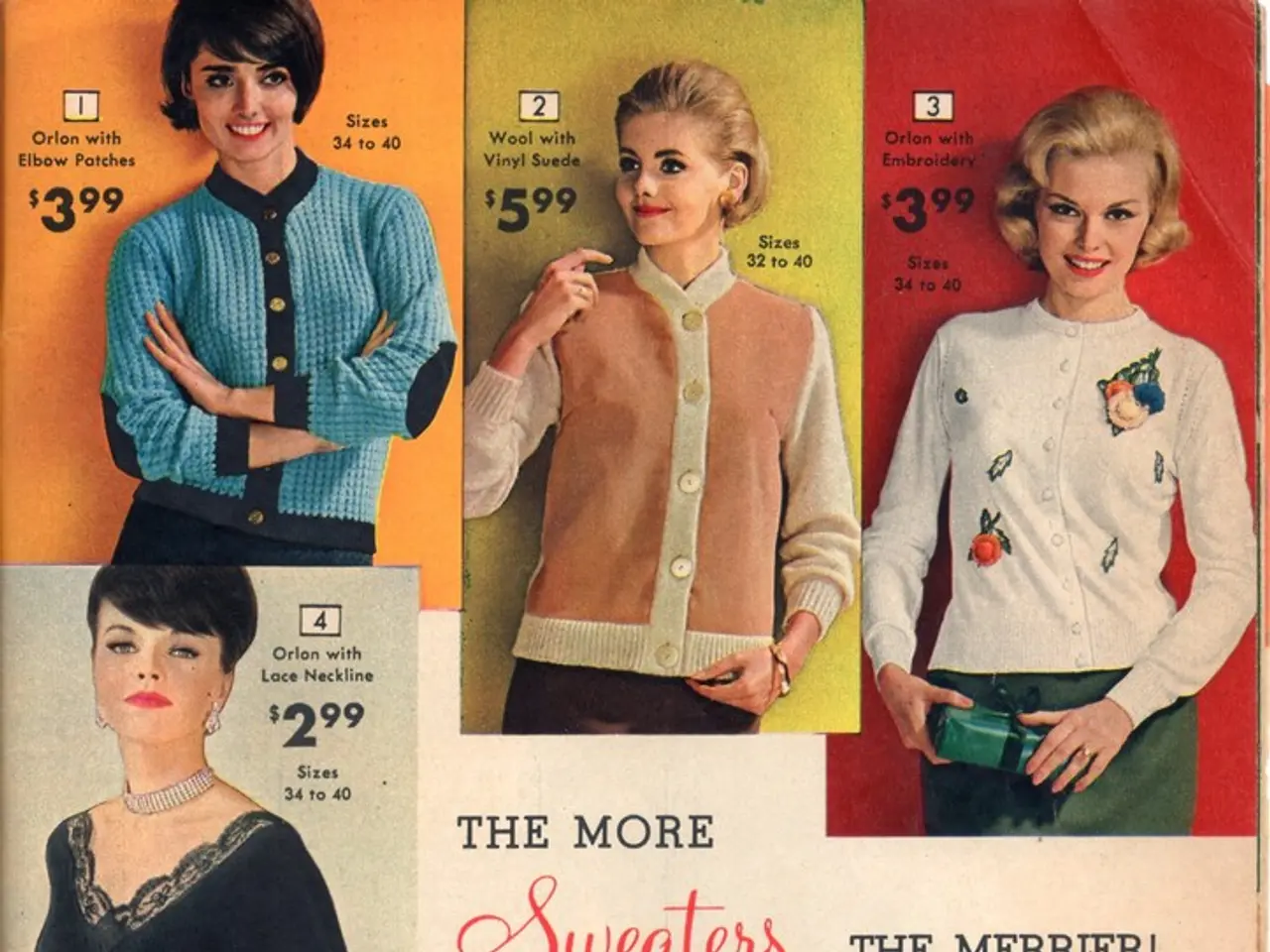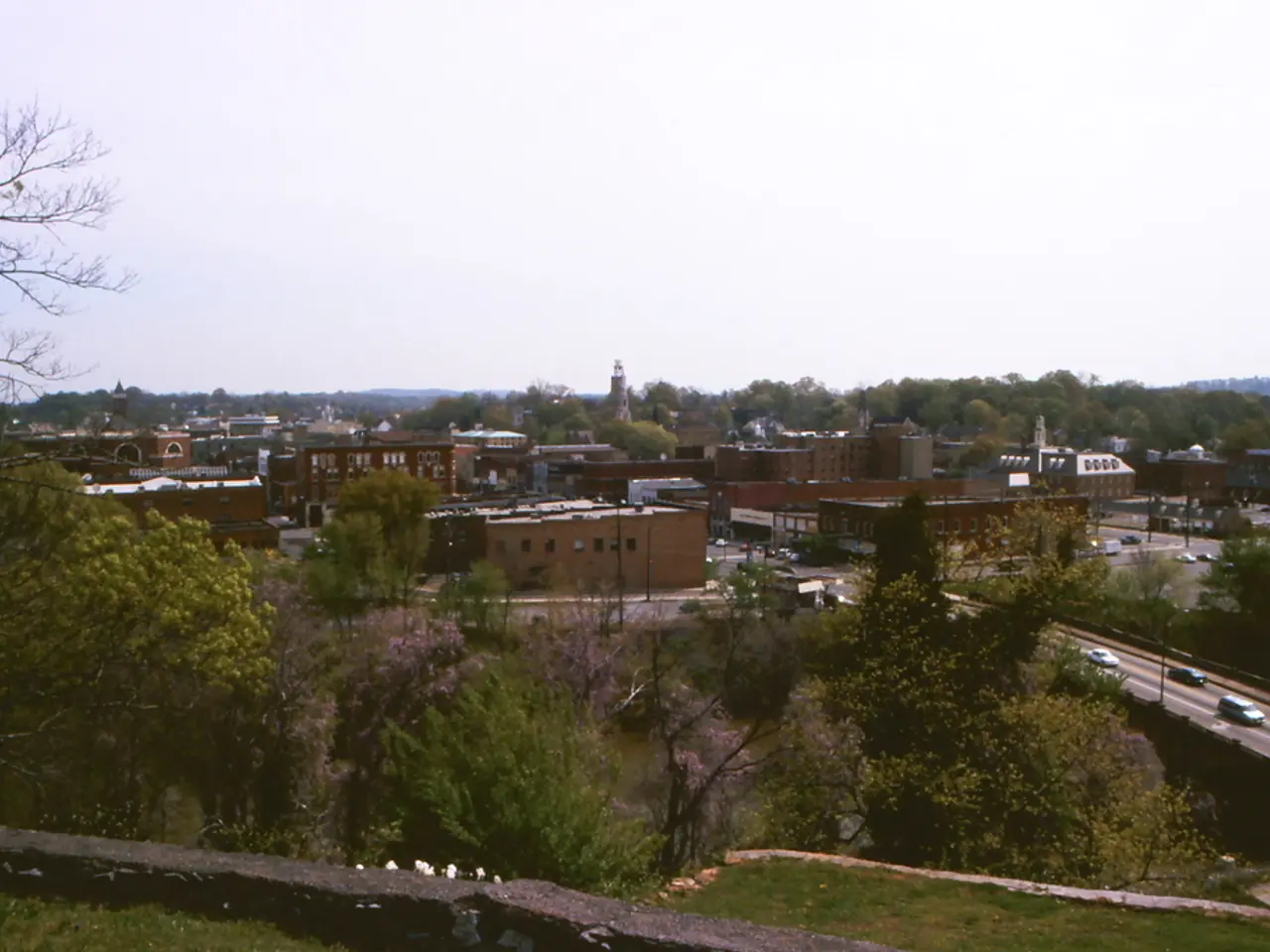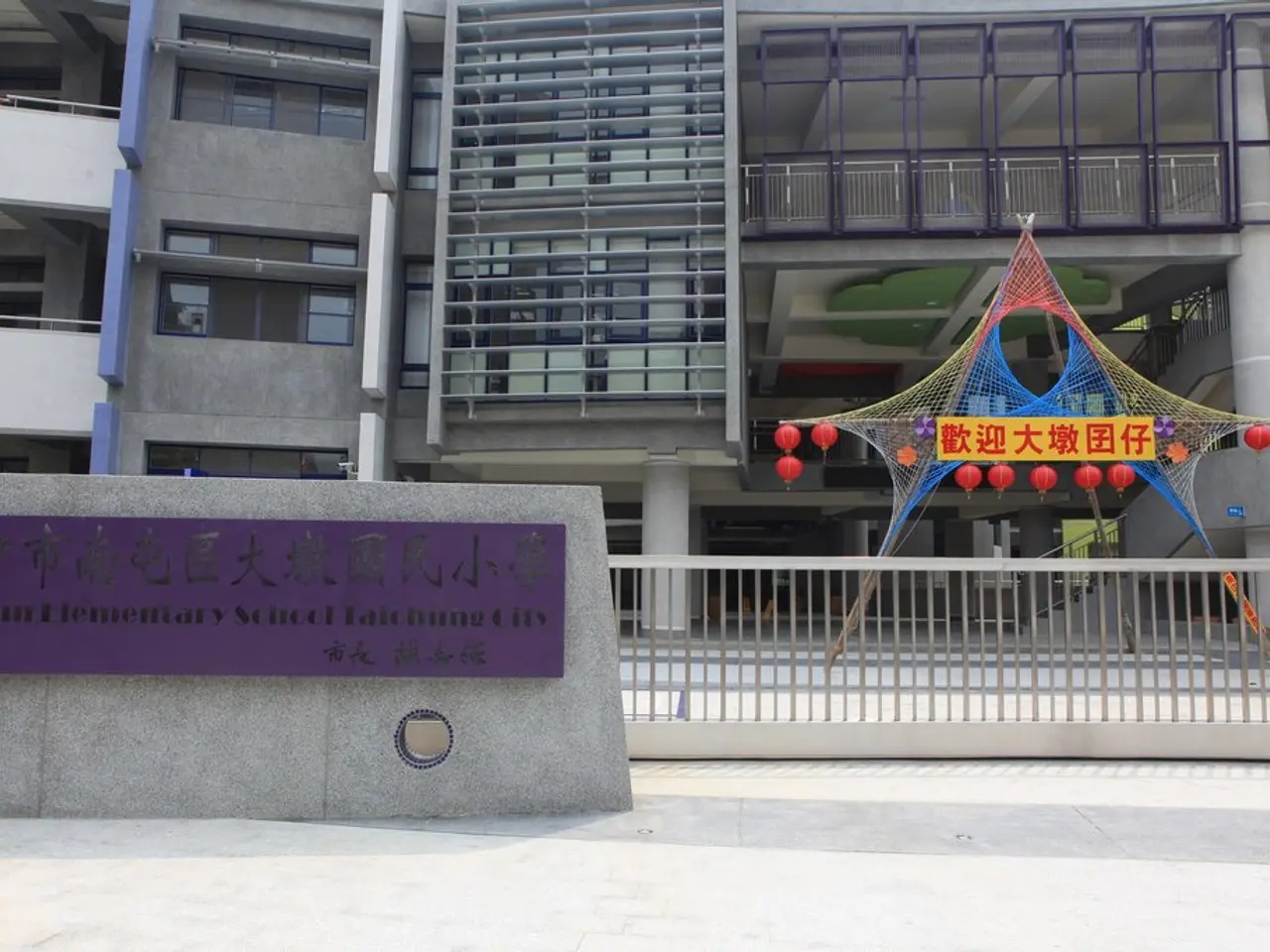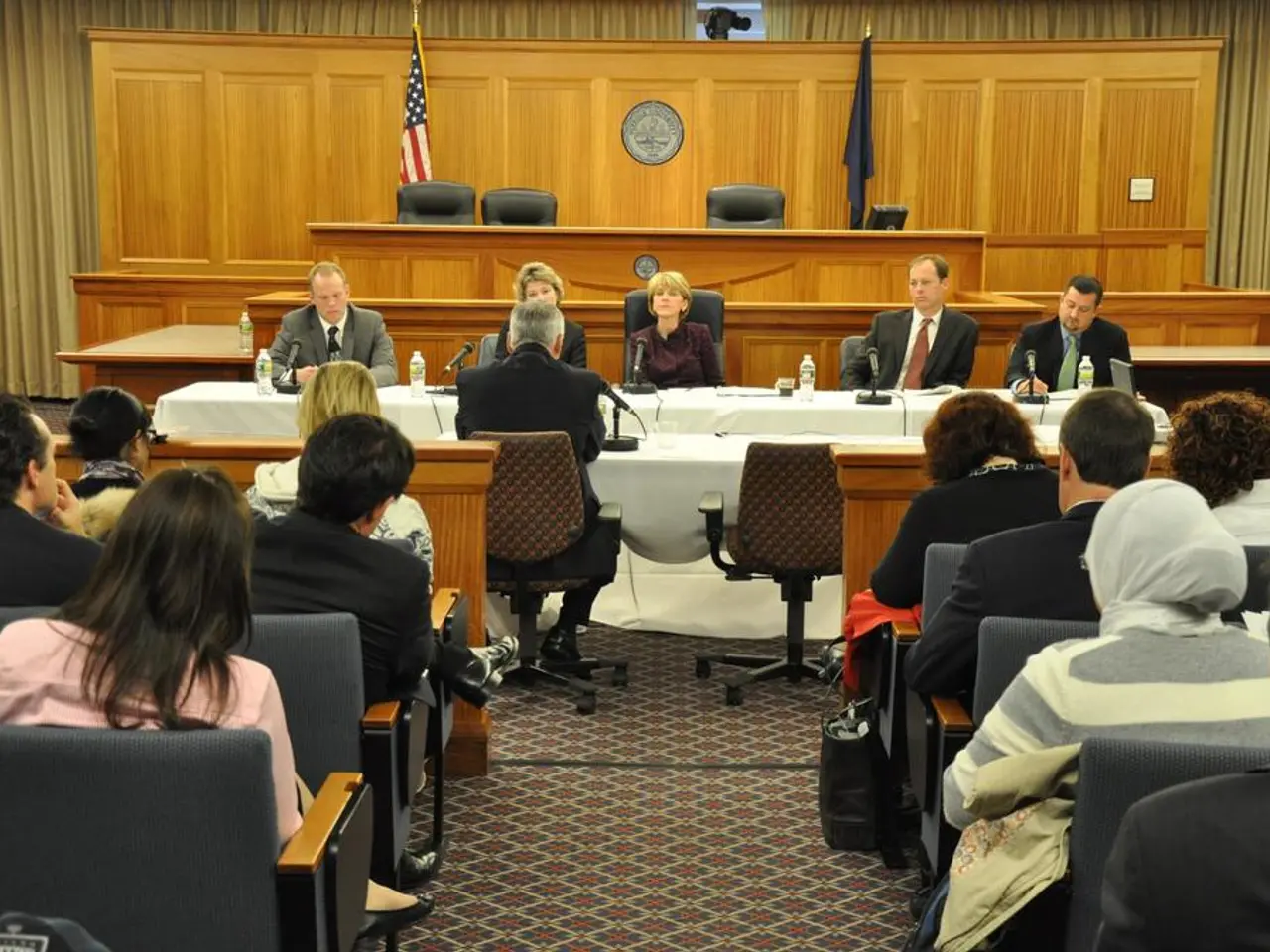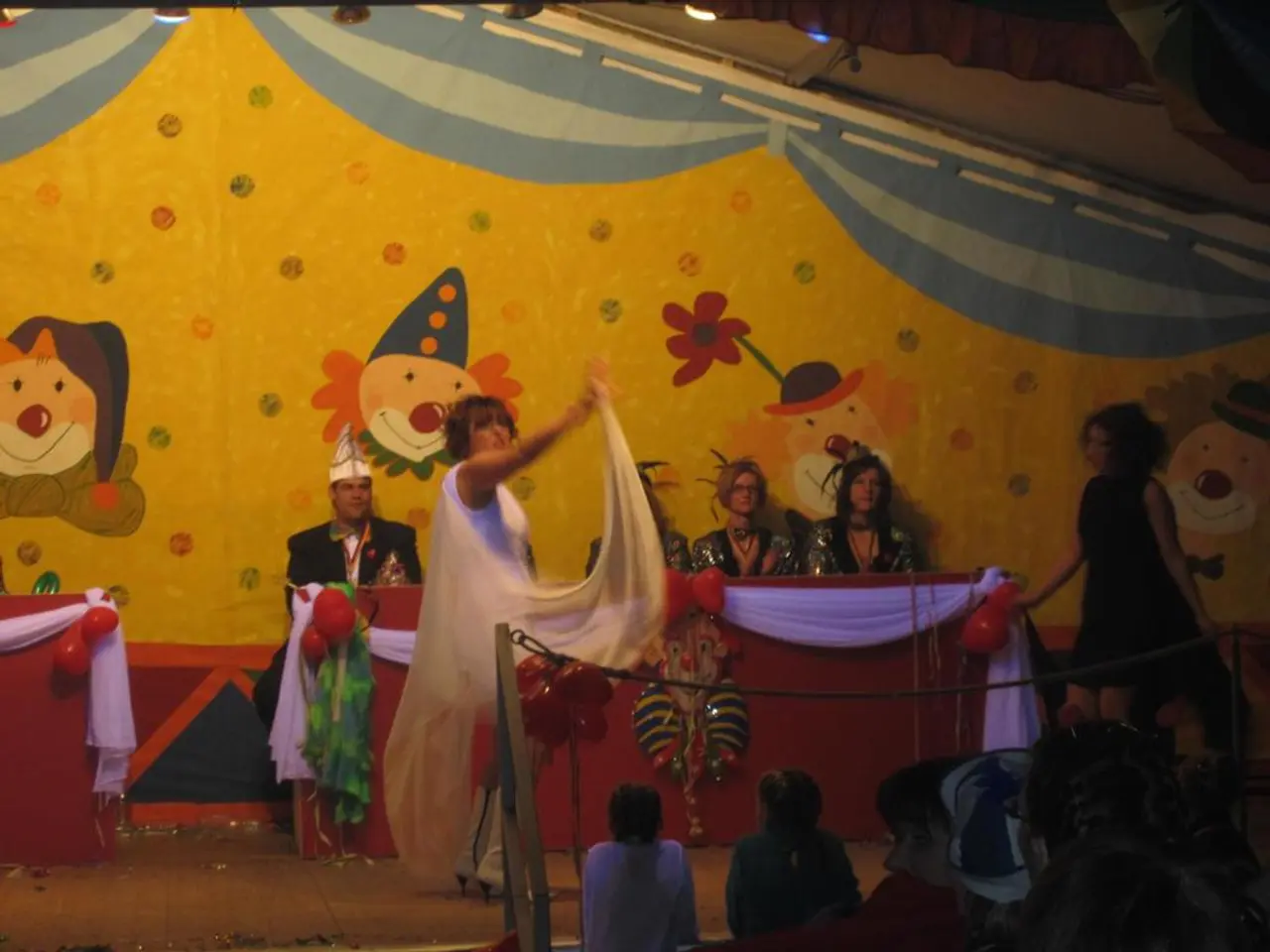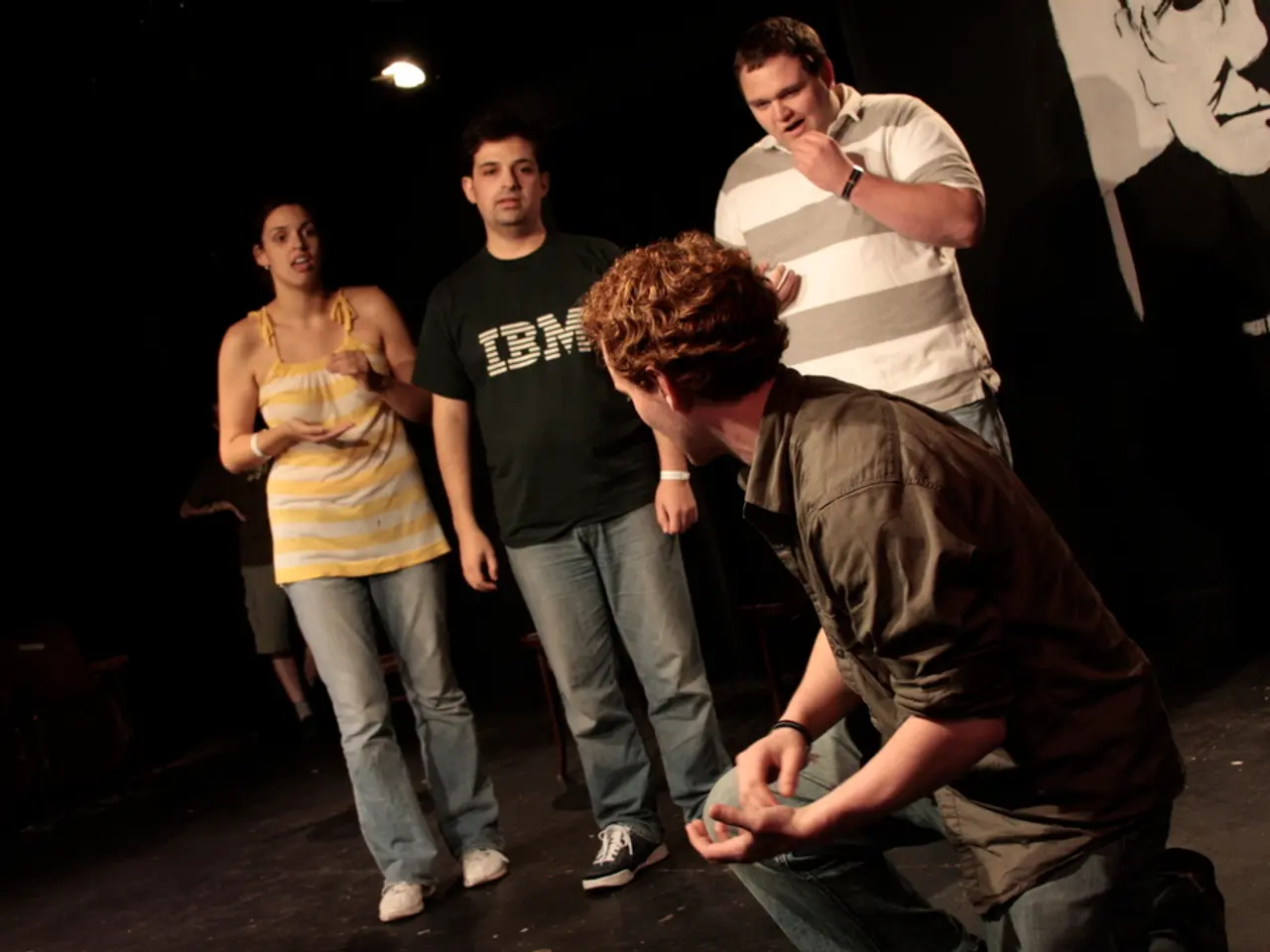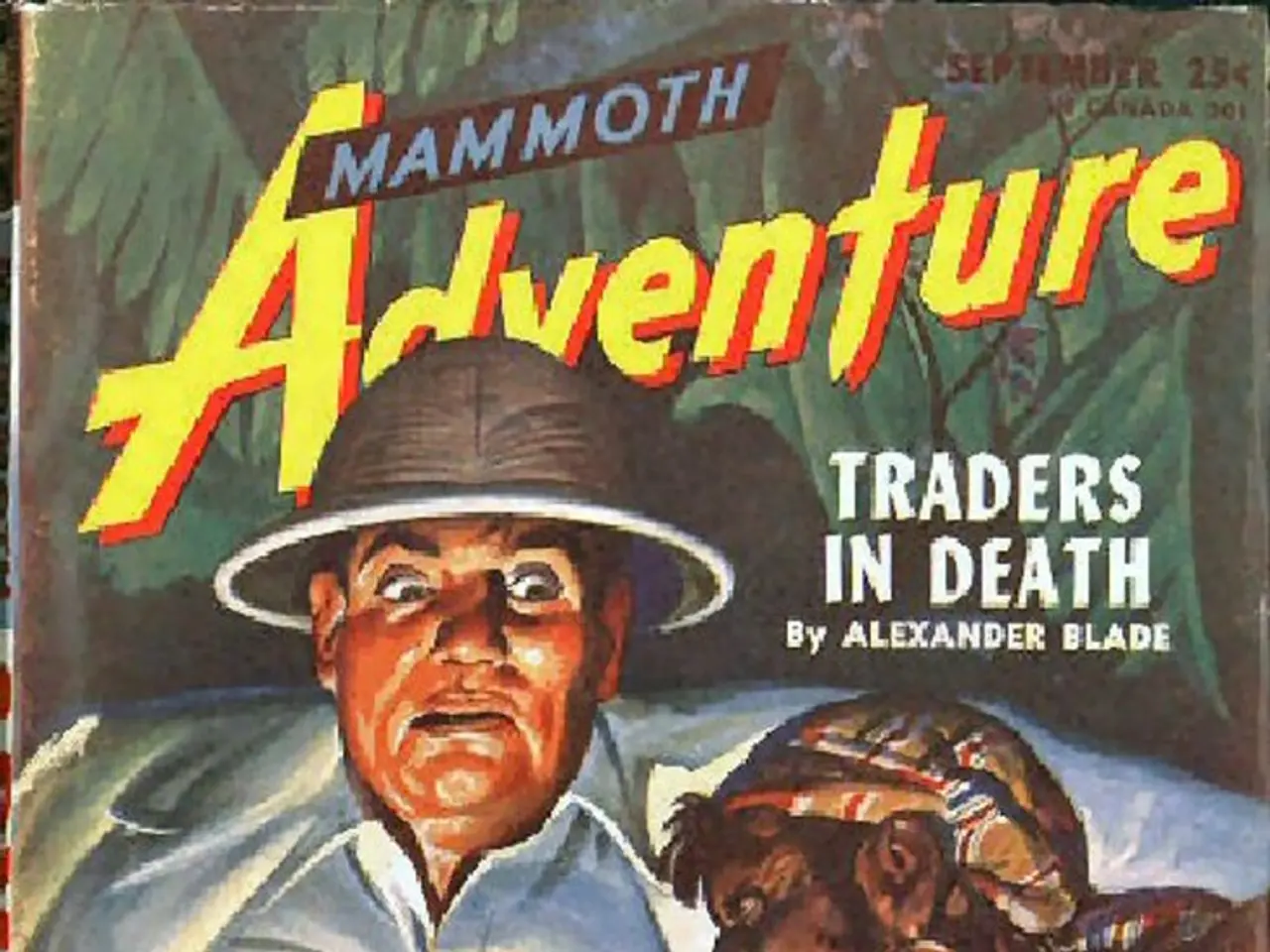"Exploration of the feminist possibilities in the art of collage, a practice predominantly developed by men, as studied by Justine Kurland"
In the picturesque town of Kingston, New York, the Center for Photography at Woodstock (CPW) is currently hosting "The Rose: A Circular Genealogy of Collage," an exhibition that delves into the world of feminist art and activism. Curated by Justine Kurland and Marina Chao, this unique show features over 50 artists who use collage as a powerful tool for expression and resistance.
The exhibition draws its name from Jay DeFeo's iconic painting, "The Rose," created between 1958-66. It traces a lineage of feminist practices through collage, spanning from the 1960s to the present day. Artists such as Hannah Wilke, Deborah Roberts, Wendy Red Star, and Frida Orupabo are among those showcased in this thought-provoking display.
The significance of "The Rose" lies in its exploration of collage as a potent protest tool and corrective process within feminist art. It highlights how collage allows artists to engage politically, imagining cultural spaces as forms of resistance amid contemporary challenges such as rising authoritarianism. Kurland and Chao envision the exhibition as part of a broader political and cultural movement, viewing art as crucial in the current landscape of social disempowerment and the "slide into fascism."
Moreover, "The Rose" challenges traditional notions of collage by centering feminist narratives and activism. Rather than viewing collage merely as an aesthetic technique, the project presents it as a dynamic feminist strategy across generations. The project is further enhanced through a published book, "The Rose: A Circular Genealogy of Collage," which documents and theorizes this circular genealogy within feminist practices.
Justine Kurland, a renowned photographer known for her "Girl Pictures" series, is one of the key figures behind this groundbreaking exhibition. Speaking from her home in New York, she views collage as a conduit to solidarity with other artists. For Kurland, "The Rose" is a specific offering that is different from any other show she has ever worked on.
Marina Chao, another curator of the exhibition, shares Kurland's vision. She sees "The Rose" as an opportunity to broaden people's understanding of what is typically classified as collage. Chao is particularly interested in an expansive and inclusive conversation about feminist approaches to collage.
"The Rose: A Circular Genealogy of Collage" is not just a display of art; it's a call to action, a testament to the power of collaboration, and a celebration of feminist resistance. The exhibition runs until August 31st, making it a must-see for anyone interested in contemporary art, feminism, and activism.
[1] The Rose: A Circular Genealogy of Collage, Center for Photography at Woodstock, Kingston, NY, USA. [2] Justine Kurland and Marina Chao, curators. [3] The Rose: A Circular Genealogy of Collage, published by Aperture Foundation, New York, NY, USA. [4] The Rose: A Circular Genealogy of Collage, exhibition catalogue.
- This extraordinary exhibition, "The Rose: A Circular Genealogy of Collage," at the Center for Photography at Woodstock in Kingston, NY, is not merely a display of art but a call to action, demonstrating the power of collaboration in the realm of fashion-and-beauty and general-news.
- The collage-focused show, "The Rose: A Circular Genealogy of Collage," curated by Justine Kurland and Marina Chao, is intriguing not only for its exploration of feminist practices in fashion-and-beauty but also for its insightful commentary on contemporary politics.
